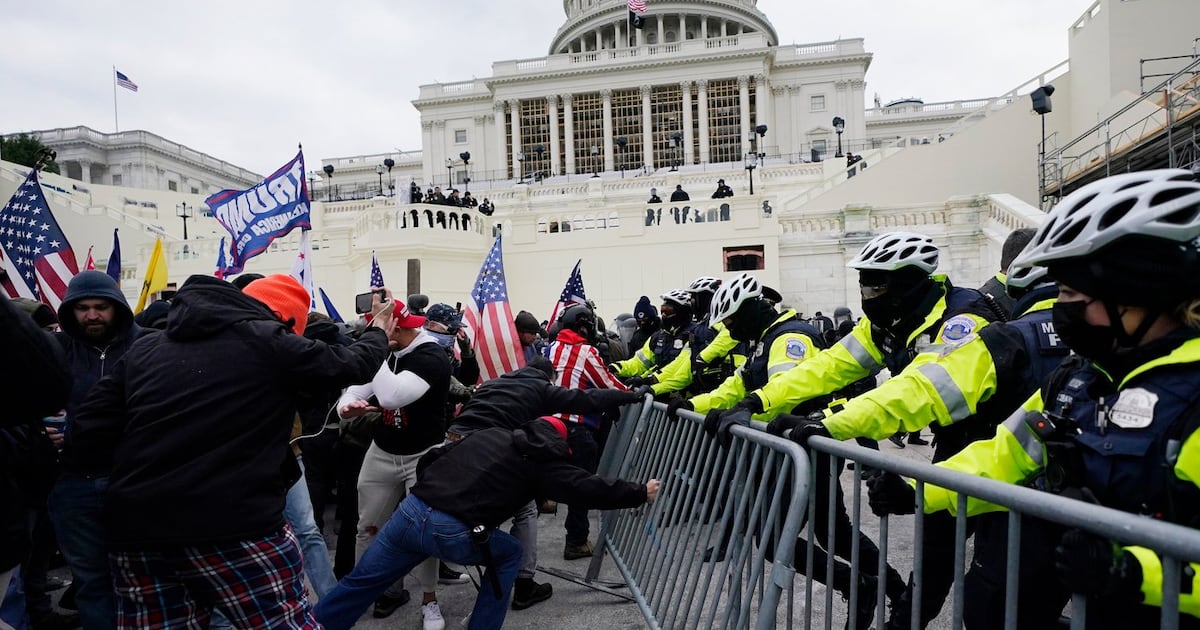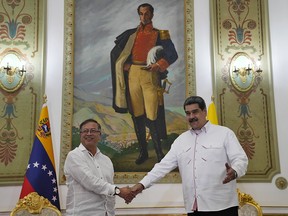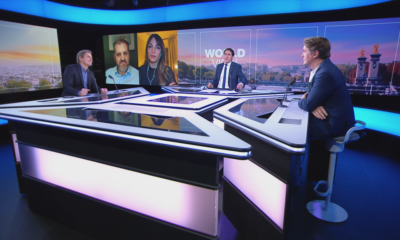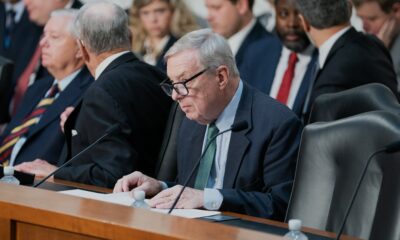Politics
Trump Grants Pardon to January 6 Defendant for Gun Offense

U.S. President Donald Trump issued a pardon on March 15, 2024, for Daniel Edwin Wilson, a defendant involved in the January 6 Capitol riot, who was serving a prison sentence for a separate gun-related offense. Wilson’s case highlights the complexities of the legal aftermath of the Capitol attack and Trump’s continued use of his presidential pardon power to benefit supporters.
Wilson was initially convicted for illegally possessing firearms while under investigation for his involvement in the riot. Authorities discovered six guns and approximately 4,800 rounds of ammunition in his residence. Due to his prior felony convictions, Wilson was prohibited from owning firearms, leading to a five-year prison sentence after he pleaded guilty to charges of conspiring to impede law enforcement and illegally possessing firearms.
The pardon allows Wilson to be released from prison, where he had been scheduled to remain until 2028. His lawyer, George Pallas, expressed gratitude for the decision, stating, “We are grateful that President Trump has recognized the injustice in my client’s case and granted him this pardon. Mr. Wilson can now reunite with his family and begin rebuilding his life.”
Legal Debate Over Pardons
The circumstances surrounding Wilson’s pardon have sparked significant legal debate. A Trump-appointed federal judge, Dabney Friedrich, criticized the Justice Department earlier this year for claiming that Trump’s pardons for January 6 rioters did not extend to Wilson’s gun offense. This statement came after federal prosecutors initially argued that the pardon did not apply, only to later amend their position after receiving clarification on the intent of the presidential pardon.
A White House official explained that the search of Wilson’s home was related to the events of January 6, suggesting that he should not have faced the legal consequences associated with the firearms due to the context of the investigation. The official, who remained anonymous, stated that this context influenced Trump’s decision to issue the pardon.
Wilson’s actions prior to the January 6 events were notable; prosecutors alleged that he had been planning for the riot for weeks and communicated with members of the far-right Oath Keepers and the anti-government Three Percenters movements. Messages presented in court indicated that Wilson had intentions of igniting a broader conflict, with one message revealing his commitment to sacrifice for his cause.
Reflecting on his actions during sentencing, Wilson expressed regret for entering the Capitol but claimed he was motivated by good intentions.
Impact of the Pardon
The implications of this pardon extend beyond Wilson’s personal circumstances. It raises questions about the legal framework surrounding presidential pardons and their application to individuals involved in the January 6 insurrection. As the Justice Department navigates the complexities of these cases, the evolving stance on the applicability of pardons to related offenses continues to be scrutinized.
The pardon of Daniel Edwin Wilson serves as a clear example of Trump’s ongoing influence over the legal landscape for his supporters. As the political climate evolves, so too will the discussions around the actions taken by the former president and their implications for the rule of law in the United States.
-

 Politics1 week ago
Politics1 week agoSecwepemc First Nation Seeks Aboriginal Title Over Kamloops Area
-

 World4 months ago
World4 months agoScientists Unearth Ancient Antarctic Ice to Unlock Climate Secrets
-

 Entertainment4 months ago
Entertainment4 months agoTrump and McCormick to Announce $70 Billion Energy Investments
-

 Lifestyle4 months ago
Lifestyle4 months agoTransLink Launches Food Truck Program to Boost Revenue in Vancouver
-

 Science4 months ago
Science4 months agoFour Astronauts Return to Earth After International Space Station Mission
-

 Technology3 months ago
Technology3 months agoApple Notes Enhances Functionality with Markdown Support in macOS 26
-

 Top Stories1 month ago
Top Stories1 month agoUrgent Update: Fatal Crash on Highway 99 Claims Life of Pitt Meadows Man
-

 Sports4 months ago
Sports4 months agoSearch Underway for Missing Hunter Amid Hokkaido Bear Emergency
-

 Politics3 months ago
Politics3 months agoUkrainian Tennis Star Elina Svitolina Faces Death Threats Online
-

 Politics4 months ago
Politics4 months agoCarney Engages First Nations Leaders at Development Law Summit
-

 Technology4 months ago
Technology4 months agoFrosthaven Launches Early Access on July 31, 2025
-

 Top Stories3 weeks ago
Top Stories3 weeks agoFamily Remembers Beverley Rowbotham 25 Years After Murder





















